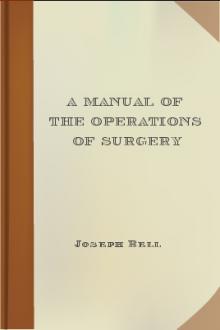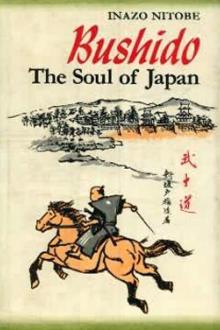Genre Literary Collections. Page - 25

gustops, with a pat of butter for each four tops; thin the soup with extract of meat and water, and at the last moment stir in the raw yolks of two eggs, and a little chopped parsley.
[_Mme. van Praet._]
GREEN PEA SOUP
Put half a pound of dry green peas to soak overnight in water, with a teaspoonful of bicarbonate of soda in it. In the morning take out the peas and put them on the fire in about three-and-a-half pints of water. When the peas are nearly cooked, add five big potatoes. When all is cooked enough for the skins to come off easily, rub all through a sieve. Fry in some butter four or five onions and five or six leeks till they are brown, or, failing butter, use some fat of beef; add these to the peas and boil together a good half-hour. If possible, add a pig's trotter cut into four, which makes the soup most excellent. When ready to serve, remove the four pieces of trotter. Little dice of fried bread should be handed with the soup.
[_V. Verachtert._]

which digital content can be replicated - publishers resortedto draconian copyright protection measures (euphemisticallyknown as "digital rights management"). This further alienatedthe few potential readers left. The opposite model of "viral"or "buzz" marketing (by encouraging the dissemination of freecopies of the promoted book) was only marginally moresuccessful.Moreover, e-publishing's delivery platform, the Internet, hasbeen transformed beyond recognition since March 2000.From an open, somewhat anarchic, web of networked computers -it has evolved into a territorial, commercial, corporateextension of "brick and mortar" giants, subject to governmentregulation. It is less friendly towards independent (small)publishers, the backbone of e-publishing. Increasingly, it isexpropriated by publishing and media behemoths. It is treatedas a medium for cross promotion, supply chain management, andcustomer relations management. It offers only some minorsynergies with non-cyberspa

CHAPTER II
HISTORY OF COFFEE PROPAGATION
A brief account of the cultivation of the coffee plant in the Old World, and of its introduction into the New--A romantic coffee adventure Page 5
CHAPTER III
EARLY HISTORY OF COFFEE DRINKING
Coffee in the Near East in the early centuries--Stories of its origin--Discovery by physicians and adoption by the Church--Its spread through Arabia, Persia, and Turkey--Persecutions and Intolerances--Early coffee manners and customs Page 11
CHAPTER IV
INTRODUCTION OF COFFEE INTO WESTERN EUROPE
When the three great temperance beverages, cocoa, tea, and coffee, came to Europe--Coffee first mentioned by Rauwolf in 1582--Early days of coffee in Italy--How Pope Clement VIII baptized it and made it a truly Christian beverage--The first Europe

mportant factors of gardening--food. The others are cultivation, moisture and temperature. "Rich" in the gardener's vocabulary means full of plant food; more than that--and this is a point of vital importance--it means full of plant food ready to be used at once, all prepared and spread out on the garden table, or rather in it, where growing things can at once make use of it; or what we term, in one word, "available" plant food. Practically no soils in long- inhabited communities remain naturally rich enough to produce big crops. They are made rich, or kept rich, in two ways; first, by cultivation, which helps to change the raw plant food stored in the soil into available forms; and second, by manuring or adding plant food to the soil from outside sources.
"Sandy" in the sense here used, means a soil containing enough particles of sand so that water will pass through it without leaving it pasty and sticky a few days after a rain; "light" enough, as it is called, so that a handful, under ordinary condit

ntly proved that the circulation can be carried on, and gangrene does not necessarily result even after such a decided interference with vascular supply.
Operation.--The ligature may be applied in one of two ways, the choice being influenced by the nature of the disease for which it is done.
1. A straight incision (Plate I. fig. 1) in the linea alba, just avoiding the umbilicus by a curve, and dividing the peritoneum, allows the intestines to be pushed aside, and the aorta exposed still covered by the peritoneum, as it lies in front of the lumbar vertebræ. The peritoneum must again be divided very cautiously at the point selected, and the aortic plexus of nerves carefully dissected off, in order that they may not be interfered with by the ligature. The ligature should then be passed round, tied, cut short, and the wound accurately sewed up.
2. Without wounding the peritoneum.
A curved incision (Plate I. fig. 2), with its convexity backwards, from the projecting end o
Mastery of Self for Wealth Power Success by Frank Channing Haddock (english love story books .TXT) 📖

fying space,In flaring furnace of the smelted ore,In haunts of coal and steam below the whirling wheels,Life laughs and sings and thundersAn oratorio merging all the powers of harmony,And hails the high-born Thief,As giver of ethereal fire.
The atomic thrill waits also the clear callTo lift dull bodies till the joy of fleshBecomes a common luxury;--To vibrate rhythmically swiftThrough all the responsive cells of thoughtTill a man might solemnly holdAll things are possible on the bursting earth;--To energize the mystic selfWith consciousness of life deificTill the whole world, jubilant, should flameWith its glory, actual, concrete, the one sure TruthOf a rock-girt globe, or a sun-filled space.--THE AUTHOR.
THE TWENTY-SEVENTH LESSON--The Four Pyramids.
This equation's writIn every scene:The end shall fit--As extremes to mean--Whatever's forerunner to it.--THE AUTHOR.
PRINCIPLE--The best use of self demands that it be understood.
Our ideal

frosted glass so the reader can peer intothat hazy world. `Underground' belongs on the Net, in their ephemerallandscape.
The critics have been good to `Underground', for which I am verygrateful. But the best praise came from two of the hackers detailed inthe book. Surprising praise, because while the text is free of thenarrative moralising that plague other works, the selection of materialis often very personal and evokes mixed sympathies. One of the hackers,Anthrax dropped by my office to say `Hi'. Out of the blue, he said witha note of amazement, `When I read those chapters, it was so real, as ifyou had been right there inside my head'. Not long after Par, half aworld away, and with a real tone of bewildered incredulity in his voicemade exactly the same observation. For a writer, it just doesn't get anybetter than that.
By releasing this book for free on the Net, I'm hoping more peoplewill not only enjoy the story of how the international computerunderground rose to power, but also make

Stubener, "an' a trail that'd break your heart."
Breakfast consisted of black coffee, sourdough bread, and an immense quantity of bear-meat broiled over the coals. Of this the young fellow ate ravenously, and Stubener divined that both the Glendons were accustomed to an almost straight meat diet. Old Pat did all the talking, though it was not till the meal was ended that he broached the subject he had at heart.
"Pat, boy," he began, "you know who the gentleman is?"
Young Pat nodded, and cast a quick, comprehensive glance at the manager.
"Well, he'll be takin' you away with him and down to San Francisco."
"I'd sooner stay here, dad," was the answer.
Stubener felt a prick of disappointment. It was a wild goose chase after all. This was no fighter, eager and fretting to be at it. His huge brawn counted for nothing. It was nothing new. It was the big fellows that usually had the streak of fat.
But old Pat's Celtic wrath flared up, and his voice was harsh with comm

's picture, who keeps his heart open that he may catch every noble impulse and everything which may inspire him, will be sure to live a successful life; there are no ifs or ands about it. If he has his health, nothing can keep him from success.
Zion's Herald says that Isaac Rich, who gave one million and three quarters to found Boston University of the Methodist Episcopal Church, began business thus: at eighteen he went from Cape Cod to Boston with three or four dollars in his possession, and looked about for something to do, rising early, walking far, observing closely, reflecting much. Soon he had an idea: he bought three bushels of oysters, hired a wheelbarrow, found a piece of board, bought six small plates, six iron forks, a three-cent pepper-box, and one or two other things. He was at the oyster-boat buying his oysters at three o'clock in the morning, wheeled them three miles, set up his board near a market, and began business. He sold out his oysters as fast as he could get them, at a g

is largely built, and it will not take us long to discover that Bushido does not stand on a lesser pedestal. If fighting in itself, be it offensive or defensive, is, as Quakers rightly testify, brutal and wrong, we can still say with Lessing, "We know from what failings our virtue springs."[3] "Sneaks" and "cowards" are epithets of the worst opprobrium to healthy, simple natures. Childhood begins life with these notions, and knighthood also; but, as life grows larger and its relations many-sided, the early faith seeks sanction from higher authority and more rational sources for its own justification, satisfaction and development. If military interests had operated alone, without higher moral support, how far short of chivalry would the ideal of knighthood have fallen! In Europe, Christianity, interpreted with concessions convenient to chivalry, infused it nevertheless with spiritual data. "Religion, war and glory were the three souls of a perfect Christian knight," says Lamartine. In Japan there were